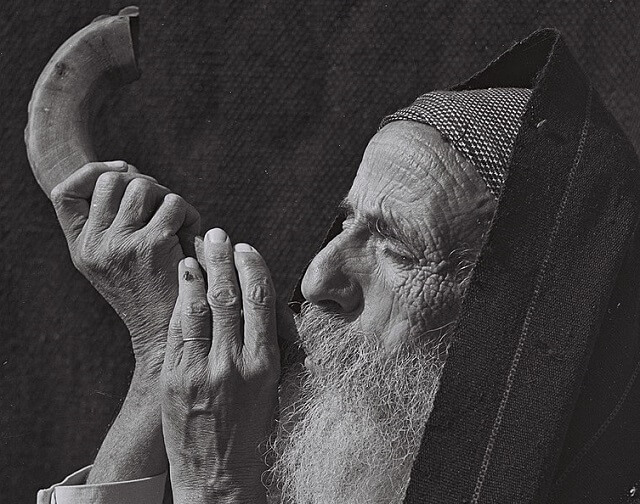
The order of the shofar blasts on Rosh Hashanah may be understood as corresponding to major stages in the history of the universe. There are two basic types of shofar blasts:
The shofar blasts are organized in sets of tekiyah, shevarim-teruah, tekiyah. First we blow one long blast, then several broken and staccato blasts, and then a long concluding blast. What do the different blasts symbolize, and why this particular order?
Past, Present, and Future
All of history may be divided up into three stages, corresponding to the three parts of the prayer:
“ה’ מֶלֶךְ. ה’ מָלָךְ. ה’ יִמְלֹךְ לְעוֹלָם וָעֶד”
“God reigns; God reigned; God will reign forever.”
“God reigned.” This refers to God’s absolute sovereignty in the past, before the sin of Adam. This is the first tekiyah, the pure clarion call of a pristine world. The word tekiyah comes from the root taku'a, meaning ’set’ or ‘fixed in place.’
Likewise, in the end of days, the era of the tekiyah will return. After all the tribulations over time, the simple, unwavering tekiyah will be heard once again, as the entire world will recognize God’s rule. This is the future era of “God will reign forever.”
Knowing the Teruah
In between the two constant tekiyah blasts, however, comes the complex intermediate stage. This is the current reality, a world that struggles to implement the ideal of “God reigns.” This difficult stage is represented by the broken shevarim blows and the sobbing of the teruah blasts (the word shever means ‘broken’ and ra'uah means ’shaky'). It is a time of volatility and uncertainty, an era characterized by advances and setbacks, progress and failure.
“אַשְׁרֵי הָעָם יוֹדְעֵי תְרוּעָה, ה’ בְּאוֹר פָּנֶיךָ יְהַלֵּכוּן.”
This is the meaning of the verse, “Fortunate is the nation that knows the teruah” (Psalms 89:16). Fortunate are those who know how to cope with the challenges of this world, who know how to transcend the teruah blasts of uncertainty and hardship. Despite the doubts and confusion, they are able to “walk in the light of Your Presence”, in the knowledge that the future era of “God will reign forever” lies ahead.
(Silver from the Land of Israel, pp. 57-58. Adapted from Mo'adei HaRe’iyah, pp. 62-63.)





